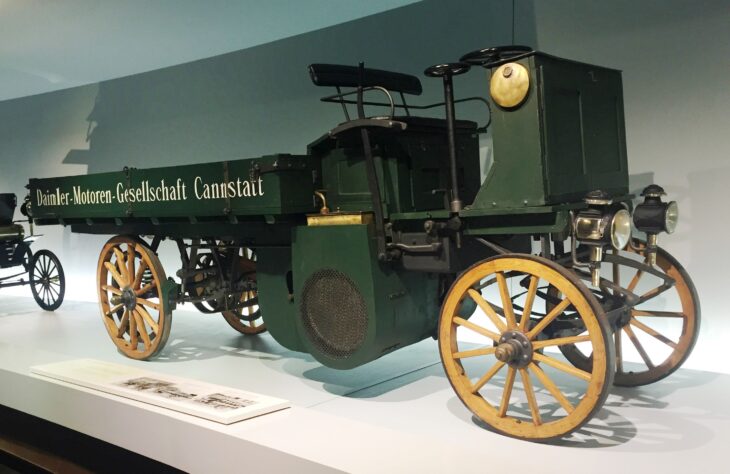A career in the trucking industry is rich with opportunities for drivers. You can be an independent contract-based truck driver, choosing freely where and when to work and deciding your own paths while hiring a tax accountant to manage your financial records https://fleet.care/services/trucking-tax-accountant/.
You can also work in a company, getting a lot of new customers all over the USA and letting dispatchers figure out your schedule. But is it really all you can get in this industry as a truck driver?
Another career option is becoming a dedicated truck driver. Dedicated trucking means you work only in a certain area and with the same customers. Let’s unpack how dedicated trucking can level up your driver’s career.
Contents
- Advantages of dedicated driving
- How to become a dedicated driver?
- What does dedicated mean in trucking?
- Is Dedicated better than OTR?
- What is the difference between dedicated and regional trucking?
- How often are dedicated truck drivers home?
- Who is the oldest truck driver?
- Are truck drivers the safest drivers?
- What is the oldest truck in the world?
- What is the life of a truck driver like
Advantages of dedicated driving

Source: tanktransport.com
The benefits of this kind of job are something that attracts a lot of drivers to this specific position. These include:
- Having more time to spend with your family. Since all of your customers will be in your area or somewhere near it, you won’t have to drive home through a few states. Instead, you’ll be able to spend some more quality time at home. The only and rare downside of this perk is relying your schedule on traffic, ETA changes, and weather conditions. Sometimes these things tweak your schedule but it’s not like other drivers that work in truck companies or independent contractors don’t know about this issue.
- Working with the same customers. Dedicated truck drivers deliver to the same clients, building better communication with them. This is definitely a perk ‒ you can learn more about your customers and work more effectively with them. Also, being the only driver for a certain customer will make you the face of the company ‒ your customers will associate the quality of your work with your trucking company and leave positive reviews.
- Knowing every road. Working in the same area means you’ll eventually get to know every route. This knowledge comes in handy when you know how to avoid traffic jams and how to optimize your routes. Besides, the more roads you know, the easier it will be for you to monitor weather conditions.
Another benefit of working as a dedicated truck driver is the salary. While it can vary from state to state and from company to company, having an average of $52000 as your annual salary is a good thing that can benefit your savings account as well.
How to become a dedicated driver?

Source: bizjournals.com
To start with, you’ll have to earn your commercial driver’s license. The program to get it can be sponsored either by your trucking company or by yourself ‒ either way, you’ll have to go to a truck driving school. A small tip from our partners at Fleet Care: choose the program that gets you a lot of hands-on experience, so you’ll adapt to road conditions and traffics as fast as you can.
After getting your CDL, you’re all good for starting your career in truck driving. You’ll need at least one year of experience in over-the-road driving ‒ this way, you’ll take notes on safer driving practices and logistics processes. You’ll need a lot of patients in that case: most dedicated drivers operate in urban areas with extremely difficult traffic, so you’ll need this experience to be good at your job.
While applying for a job in a trucking company, remember the difference between regional truck drivers and dedicated ones. Regional drivers work in a specific region not limited by one state, i.e. in Midwest, and they have different customers for every order. Dedicated drivers work in a way in smaller regions and with a stable clientele ‒ usually, they work with local stores or retailers.
-
What does dedicated mean in trucking?

Source: drivecrst.com
Dedicated trucking refers to carriers that haul freight for one primary customer on the same route. By hauling the same consistent truckloads in the same freight lanes, a dedicated driver gets to know the routes, schedules, and people at designated locations.
-
Is Dedicated better than OTR?
There are a lot fewer out-of-pocket costs if you driving a dedicated route. You are no longer eating and living on the road for weeks at a time. Many dedicated drivers pack a lunch and are cutting their costs substantially compared with OTR drivers.
-
What is the difference between dedicated and regional trucking?

Source: cdscdltraining.com
There is a difference between dedicated and regional drivers. Regional truck drivers operate in a specific area, such as the Northeast or Midwest, whereas dedicated commercial drivers follow a specific and repeatable route.
-
How often are dedicated truck drivers home?
Long haul drivers typically come home every four to six weeks. If you are a city or regional truck driver, it may be a little different.
-
Who is the oldest truck driver?

Source: wcax.com
At 97, Floyd Van Alstyne, claimed to be the oldest truck driver in America. The Vermont man drives log trucks and dump trucks for the sawmill on his family farm. Now, at 99, he was honored by the town of Barnard for his years of service.
-
Are truck drivers the safest drivers?
Studies have shown that professional drivers are safer drivers than nonprofessionals. Large trucks have an overall crash rate 29% lower than other vehicles, and the number of large truck-involved fatal crashes fell 32% from 1985 to 2015, according to the Federal Motor Carrier Safety Administration.
-
What is the oldest truck in the world?

Source: jlconline.com
During a recent trip to Germany I visited the Mercedes Benz Museum in Stuttgart, and one of the coolest things I saw was the world’s oldest existing truck. Its maker, Daimler, referred to it as a lastwagen—which literally translates to “load carriage”, a term that has come to mean truck.
-
What is the life of a truck driver like
Truck drivers typically have a long workday that starts early and ends late. In the middle, they are on the road most of the time, up to a maximum of 11 hours a day. Their workday consists of tight schedules that must be met, with an ever-present risk of delay due to a variety of events.
